Cats are beloved pets that bring joy and companionship to many households. As a cat owner, it’s important to ensure that your feline friend stays healthy and happy. One crucial aspect of cat care is taking them to the vet regularly. But how often should you take your cat to the vet?
Understanding the Importance of Regular Vet Visits
Regular vet visits are essential for maintaining your cat’s health and preventing potential health issues. During these visits, your veterinarian will conduct a thorough exam, check for any signs of illness, and administer necessary vaccinations. Additionally, routine vet visits provide an opportunity to discuss any concerns you may have regarding your cat’s behavior, diet, or overall well-being.
Frequency of Vet Visits Based on Cat’s Age
The frequency of vet visits will depend on your cat’s age and overall health. Kittens require more frequent vet visits, usually every three to four weeks until they are about four months old. Adult cats should see the vet at least once a year, while senior cats (aged seven years or older) may require more frequent visits. However, if your cat has a chronic medical condition or other health concerns, your veterinarian may recommend more frequent visits.
Key Takeaways
- Regular vet visits are crucial for maintaining your cat’s health and preventing potential health issues.
- The frequency of vet visits will depend on your cat’s age and overall health.
- Kittens require more frequent vet visits, while adult cats should see the vet at least once a year.
Understanding the Importance of Regular Vet Visits
Regular vet visits are crucial for maintaining the health and well-being of cats. Whether you have a kitten or an adult cat, it is important to take them to the vet for routine check-ups and preventative care.
Vets recommend that cats receive a check-up at least once a year, but more frequent visits may be necessary depending on the cat’s age, health, and lifestyle. Kittens, for example, require more frequent visits to ensure that they are growing and developing properly.
During a vet visit, the veterinarian will perform a physical exam to check for any signs of illness or disease. They may also recommend preventative care such as vaccinations, parasite control, and dental care. Early detection of health problems can lead to more successful treatment outcomes and can ultimately save the cat’s life.
Regular vet visits also provide an opportunity for cat owners to discuss any concerns or questions they may have with the veterinarian. This can include topics such as nutrition, behavior, and environmental enrichment.
In summary, regular vet visits are essential for maintaining the health and well-being of cats. By taking your cat to the vet for routine check-ups and preventative care, you can ensure that they receive the best possible care and live a long and healthy life.
Frequency of Vet Visits Based on Cat’s Age
Regular visits to the veterinarian are essential for ensuring the health and well-being of cats. The frequency of vet visits required for a cat depends on its age. In this section, we will discuss the recommended frequency of vet visits for kittens, adult cats, and senior cats.
Kitten Vet Visits
Kittens require frequent vet visits during their first year of life. These visits are necessary to ensure that the kittens are healthy and developing normally. Kitten vet visits should begin when the kitten is around eight weeks old and continue every three to four weeks until the kitten is around 16 weeks old.
During these visits, the veterinarian will perform a physical exam, administer vaccinations, and check for any underlying health issues. The vaccinations that kittens receive during these visits include the FVRCP vaccine, which protects against feline distemper, and the FeLV vaccine, which protects against feline leukemia. Kittens also require deworming during their early vet visits.
Adult Cat Vet Visits
Once a cat reaches adulthood, the frequency of vet visits can be reduced. Adult cats should visit the veterinarian at least once a year for a wellness exam and to receive any necessary vaccine boosters, such as the rabies vaccine.
Neutered and spayed cats may require fewer vet visits, but it is still important to monitor their health and wellness. During these visits, the veterinarian will perform a physical exam, check the cat’s weight, and discuss any dietary needs or behavior issues.
Senior Cat Vet Visits
Senior cats require more frequent vet visits than adult cats. These visits should occur at least twice a year to monitor the cat’s health and detect any age-related diseases. Senior cats are more prone to kidney disease, so the veterinarian may recommend bloodwork to check kidney function.
During these visits, the veterinarian will perform a physical exam, check for any underlying health issues, and discuss any changes in the cat’s behavior or activity level. Senior cats may also require additional vaccinations, depending on their lifestyle and risk factors.
In conclusion, the frequency of vet visits required for a cat depends on its age. Kittens require frequent vet visits during their first year of life, while adult cats should visit the veterinarian at least once a year. Senior cats require more frequent vet visits to monitor their health and detect any age-related diseases. By following these guidelines, cat owners can ensure that their feline friends remain healthy and happy for years to come.
Recognizing Signs of Illness
As a responsible cat owner, it is important to recognize the signs of illness in your feline friend. Cats are notorious for hiding their symptoms, so it is important to be observant and take note of any changes in behavior or appetite.
One of the most common signs of illness in cats is vomiting. While occasional vomiting may not be a cause for concern, frequent or persistent vomiting could be a sign of an underlying health issue. Similarly, diarrhea can also be a sign of illness and should be monitored closely.
Changes in appetite can also be a sign of illness. If your cat suddenly loses interest in food or stops eating altogether, it is important to seek veterinary care. Conversely, an increase in appetite could also be a sign of illness, particularly if your cat is losing weight despite eating more.
Fatigue or lethargy is another common sign of illness in cats. If your cat is sleeping more than usual or seems to lack energy, it could be a sign of an underlying health issue.
Finally, lumps or growths on your cat’s body should be checked by a veterinarian. While some growths may be harmless, others could be cancerous or require medical attention.
By being observant and recognizing the signs of illness in your cat, you can help ensure that your feline friend receives prompt medical attention when needed.
Importance of Vaccinations
Vaccinations are an essential part of a cat’s health care routine. They help prevent deadly diseases that can be easily spread among felines. Regular vaccinations can keep cats healthy and protect them from a range of illnesses.
One of the most important vaccines for cats is the rabies vaccine. Rabies is a fatal disease that can be transmitted to humans and other animals. It is mandatory in many states and getting your cat vaccinated against rabies is crucial.
Another important vaccine is the FVRCP vaccine, which protects against feline viral rhinotracheitis, calicivirus, and panleukopenia. These diseases are highly contagious and can be fatal in cats. The FVRCP vaccine is usually given in a series of shots, with booster shots given every one to three years.
The feline leukemia (FeLV) vaccine is also recommended for cats. FeLV is a viral disease that can be transmitted from cat to cat through saliva, blood, and other bodily fluids. It can cause a range of symptoms, including anemia, weight loss, and even cancer. The FeLV vaccine is given in a series of shots, with booster shots given every one to two years.
It’s important to note that vaccines are not a one-time solution. Booster shots are necessary to ensure that cats remain protected against diseases. Without booster shots, the immunity provided by vaccines can weaken over time, leaving cats vulnerable to illness.
In conclusion, vaccinations are an essential part of a cat’s health care routine. They help protect cats from deadly diseases and ensure their long-term health and well-being. Regular booster shots are necessary to maintain immunity and keep cats protected against illnesses.
Understanding Parasite Control
Parasites are a common problem for cats and can cause serious health issues if left untreated. Regular parasite control is essential to keep your cat healthy. Deworming is an important part of parasite control and should be done on a regular basis.
There are many different types of parasites that can affect cats, including roundworms, tapeworms, hookworms, and heartworms. Each type of parasite requires a different approach to control and treatment.
Deworming medication is available in various forms, including tablets, liquids, and topical treatments. It is important to follow the instructions on the label carefully to ensure that the medication is given correctly.
In addition to deworming, there are other steps that can be taken to control parasites. Regular cleaning of litter boxes and bedding can help to prevent the buildup of parasites in the environment. Flea and tick treatments can also be used to prevent infestations.
It is important to consult with a veterinarian to determine the best parasite control plan for your cat. They can provide advice on the most effective treatments and help to monitor your cat’s health for any signs of parasite infestation.
Overall, regular parasite control is essential for the health and wellbeing of your cat. By following a comprehensive parasite control plan, you can help to prevent serious health issues and keep your cat happy and healthy.
Importance of Dental Health
Regular dental check-ups are crucial for a cat’s overall health. Dental care is often overlooked by cat owners, but it is essential to prevent dental disease. Dental disease is a common problem in cats and can lead to serious health issues if left untreated.
Dental disease in cats can cause pain, bad breath, and difficulty eating. It can also lead to more severe health problems such as kidney, liver, and heart disease. Regular dental check-ups can help detect dental problems early on, preventing more severe health issues from developing.
Cats should have their teeth checked by a veterinarian at least once a year. During a dental check-up, the veterinarian will examine the cat’s teeth and gums for signs of dental disease. The veterinarian may also recommend a dental cleaning if necessary.
In addition to regular dental check-ups, there are other ways to help maintain a cat’s dental health. Providing a healthy diet and avoiding sugary treats can help prevent dental disease. Brushing a cat’s teeth regularly can also help prevent dental problems.
In conclusion, dental health is essential for a cat’s overall health. Regular dental check-ups and proper dental care can help prevent dental disease and ensure a cat’s long-term health.
Nutrition and Dietary Needs
Proper nutrition is essential for a cat’s overall health and well-being. A balanced diet provides all the necessary nutrients to maintain a healthy weight, strong bones, and shiny coat. A cat’s diet should consist of high-quality protein, fats, and carbohydrates.
Cats are obligate carnivores, which means they require a diet high in animal protein. Feeding a cat a vegetarian or vegan diet can lead to serious health problems. Commercial cat food is formulated to meet a cat’s nutritional needs and is a convenient option for most cat owners.
It is important to read the label on the cat food to ensure that it meets the nutritional requirements for a cat’s age and health. Kittens require more calories and protein than adult cats, while senior cats may require a lower calorie diet.
Cats also have specific dietary needs that can vary depending on their health status. For example, cats with kidney disease may require a low-protein diet, while cats with urinary tract issues may benefit from a diet that promotes urinary tract health.
In addition to a balanced diet, some cats may benefit from supplements such as catnip. Catnip is a herb that can be used to stimulate a cat’s appetite and encourage them to eat. It can also provide mental stimulation and reduce stress in some cats. However, it is important to note that not all cats are affected by catnip, and some may have adverse reactions to it.
Overall, it is important to provide a balanced and appropriate diet for a cat’s nutritional needs. Regular visits to the vet can help ensure that a cat’s dietary needs are being met and any health issues are addressed promptly.
Indoor Vs Outdoor Cats
When it comes to taking cats to the vet, whether they are indoor or outdoor cats can make a difference in how often they need to go. Indoor cats generally have a lower risk of injury and disease than outdoor cats, which means they may not need to go to the vet as often.
Indoor Cats
Indoor cats are less likely to get into fights with other animals, get hit by a car, or contract diseases from other cats. However, they are still susceptible to health problems such as obesity, dental issues, and urinary tract infections. Regular check-ups with a veterinarian can help catch these issues early on and prevent them from becoming more serious.
Outdoor Cats
Outdoor cats are exposed to more risks than indoor cats. They are more likely to get into fights with other animals, get hit by a car, and contract diseases from other cats. As a result, outdoor cats should be taken to the vet more frequently than indoor cats.
It is recommended that outdoor cats receive a check-up at least once a year, but more frequent visits may be necessary depending on the cat’s age, health, and lifestyle. Outdoor cats should also be vaccinated against common diseases such as rabies and feline leukemia.
Overall, whether a cat is indoor or outdoor can impact how often they need to go to the vet. Regular check-ups are important for all cats to ensure they stay healthy and happy.
Addressing Behavioral Issues
Behavioral issues can be a common problem among cats, and they can manifest in a variety of ways. Some cats may exhibit anxiety, aggression, or destructive behavior, while others may have litter box issues or excessive grooming habits. These issues can be frustrating for pet owners, but they can also be indicators of underlying health problems.
One way to address behavioral issues in cats is through the use of pheromone sprays. These sprays mimic the natural pheromones that cats produce, which can help to reduce anxiety and promote relaxation. They can be useful in a variety of situations, such as introducing a new cat to the household, or helping a nervous cat adjust to a new environment.
It is important to note, however, that while pheromone sprays can be effective in some cases, they are not a cure-all for all behavioral issues. If a cat’s behavior is severe or persistent, it may be necessary to seek the advice of a veterinarian or animal behaviorist.
In addition to pheromone sprays, there are a number of other strategies that pet owners can use to promote happy and healthy behavior in their cats. These include providing plenty of toys and enrichment activities, ensuring that the cat has access to a comfortable and safe space, and maintaining a consistent routine.
Ultimately, addressing behavioral issues in cats requires a combination of patience, persistence, and knowledge. By staying informed about the latest research and best practices, pet owners can help their cats live happy and healthy lives.
Frequently Asked Questions
How often should indoor cats go to the vet?
Indoor cats should have a regular check-up at least once a year. However, cats with pre-existing medical conditions or senior cats may require more frequent visits. It’s important to consult with a veterinarian to determine the appropriate frequency of visits based on your cat’s individual needs.
Are annual vet visits necessary for cats?
Annual vet visits are highly recommended for cats. These visits allow the veterinarian to monitor the cat’s overall health, detect any potential health issues, and administer necessary vaccinations. Regular check-ups can also help catch any problems early, which can lead to more successful treatment outcomes.
How often do kittens need to go to the vet?
Kittens require more frequent visits to the vet than adult cats. In the first year of life, kittens should have at least three vet visits, including vaccinations, deworming, and spaying or neutering. After the first year, the frequency of visits can be reduced to once a year.
When should I take my cat to the vet for vomiting?
If your cat vomits occasionally, it may not be a cause for concern. However, if the vomiting is persistent or accompanied by other symptoms such as diarrhea, lethargy, or loss of appetite, it’s important to take your cat to the vet. These symptoms could indicate a more serious underlying health issue.
How much are vet visits for cats?
The cost of veterinary visits for cats can vary depending on the location, type of visit, and services provided. On average, a routine check-up can cost between $50 and $100. However, additional services such as vaccinations, blood work, or diagnostic tests can increase the cost.
How often does the average cat go to the vet?
The average cat should have at least one vet visit per year. However, the frequency of visits can vary depending on the cat’s age, health status, and lifestyle. It’s important to consult with a veterinarian to determine the appropriate frequency of visits for your cat.

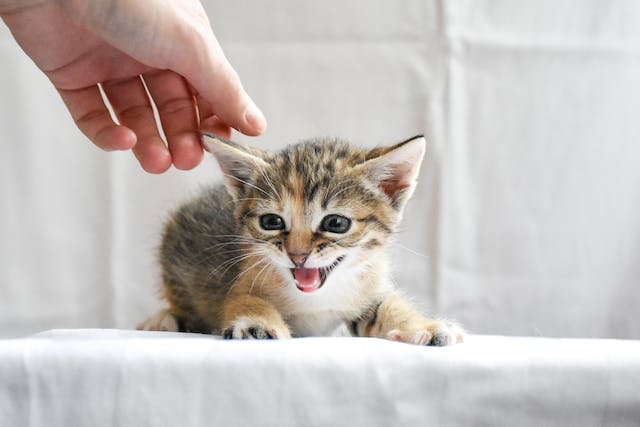
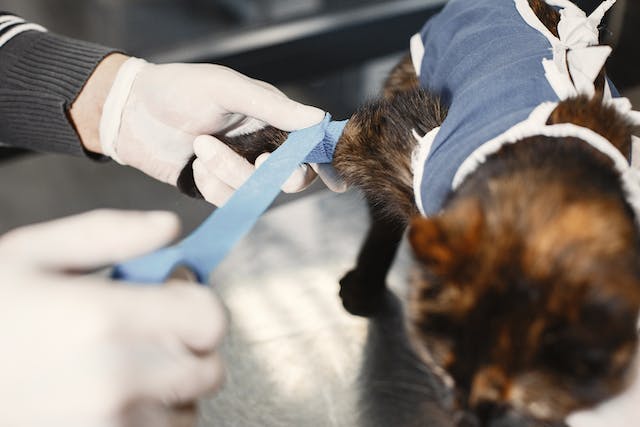
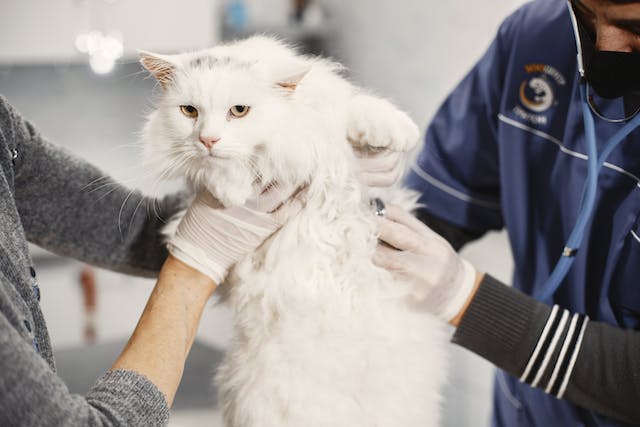
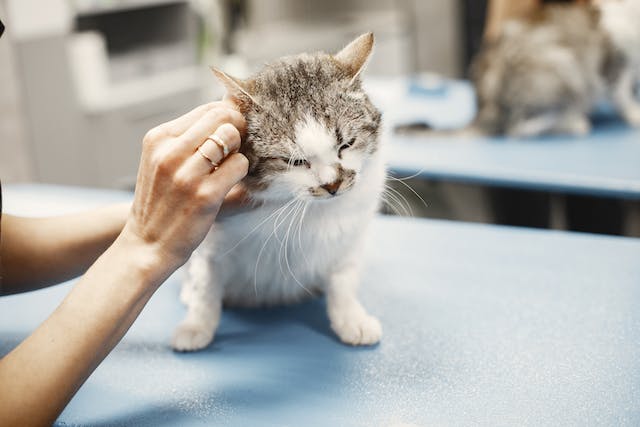
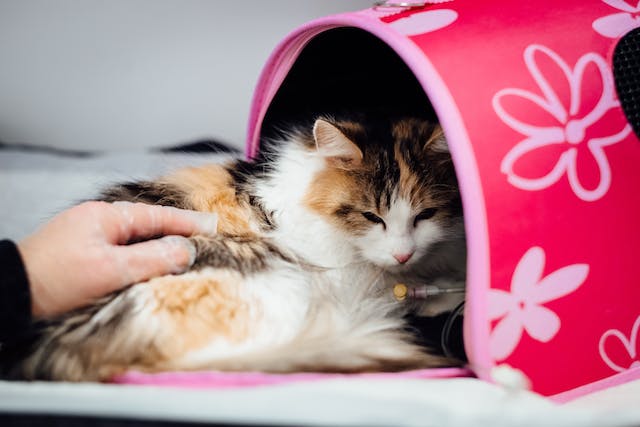








Comments are closed.